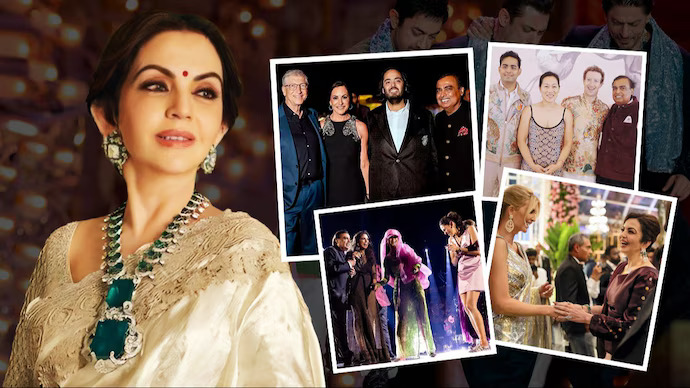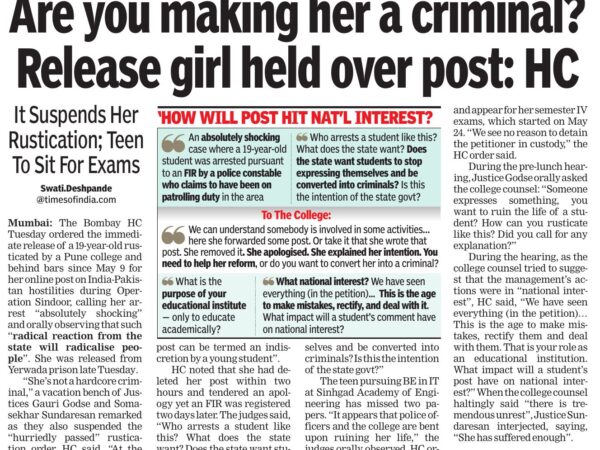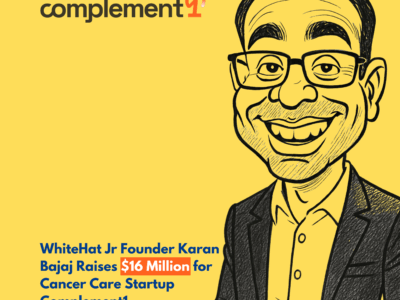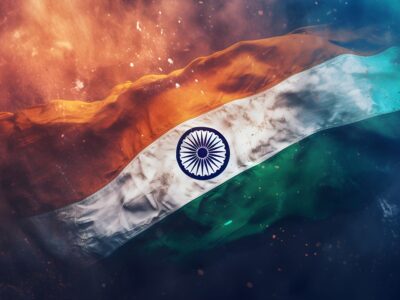Finally, my take on the Ambani wedding. Or pre-wedding. Whatever.
The extravaganza was a blinding, ostentatious, even vulgar display of wealth and power. Everyone and their uncle and their dog, knows that. So, no prizes for guessing that one.
The proud right-wing nationalists claim that it proves that we Indians are not poor, that we are now a force to reckon with, that our economy is strong, that such wealth may be created within 2 generations prove that we are a truly equal society and a democracy (the mother of all democracies, in fact), and this is what a Vishwaguru, a true superpower, must look like.
After all, it is their (the Ambani family’s) money, made legally (or at least not illegally, given that we are all innocent until proven guilty in a democracy), spent legally (see above disclaimer), and we are all known to spend extravagantly on our children’s weddings, especially Indians. So, why crib just because one cannot afford or match the richest man in India? Also, it is not the bride or the bridegroom’s fault that they are born in the right wombs. You’d do the same for your kids.
Just like your household staff might look upon your daughter’s festivities at a destination wedding or your son’s graduation party and wonder what the need for such vulgar display of wealth is, you look upon Mukesh and Nita’s indulgence of their son’s ceremony. Just like you’d buy an X car for a Y price and your driver might question the need to spend so much on a four-wheeler, or that you’d buy a watch or a shirt or take a vacation and your vegetable seller might think it unnecessary, even indecent, your or my opinion of the Ambani do is simply born of a very very large disparity in our incomes, and hence what we feel about how much money is ‘reasonable’ to spend on a wedding, or a accessory, or a holiday, or whatever, is rather subjective.
Lastly, the money they spent has not gone into the ether. It has trickled down to the smallest vendor of flowers, and the veggie farmer, and the small trader, and the decorator, and the cab owner, and the tailor, and so on. The Rs.1,000 Crore spent on the pre-wedding (with a promise to spend more on the actual ceremony) means another Rs.1,000 Crore worth of money circulating in the economy.
Hence, it is all valid, bar your envy. Should you find yourself in the same place as Anant’s parents, what are the odds you would not behave in an exactly similar fashion or (and I am willing to wager some serious money on this) far, far worse than Nita and Mukesh did. Indeed, to paraphrase a famous personality,
I am sure the Ambanis stand astounded at their own moderation!
So, yes. I agree with the right-wing view that a person with the sort of money and power as possessed by Mukheshbhai spending the kind of money he spent on his son’s wedding extravaganza and putting on the kind of ostentatious display of wealth that he did, should not be faulted for doing what any Indian father would do for his son.
So, what are my objections? None, really. I only have observations. Here they are:
- Such disparity must not exist in a well-regulated market. The presence of billionaires is a slap in the face of capitalism. This might come as a surprise to some people who believe that I am somehow a communist. I am not. I am firmly in the corner of free markets. However, for true free markets to operate, regulation is necessary, and for such regulation to be in the interest of the market, it must be controlled by the people such markets serve, through their representatives, aided by experts who apply objective science to the regulation. Hence, democracy and capitalism are inherently intertwined, and I believe that only in a perfect democracy can a perfect free market exist. Ambanis prove we have no democracy since it is obvious we have no free markets where forces can operate in a manner as to never allow a concentration of such wealth and power in the first place.
- Trickle down from the largesse of a feudal lord or a landlord spending on religious, cultural, or personal functions is not how a matured economy operates. That is how India was 77 years ago when we broke the shackles of colonialism to claim freedom for ourselves. Ever since we have tried to make ourselves a modern country with a modern economy. Today, in 2024, some nationalists claim that we have an economy that is the 5th (or 4th or 3rd; doesn’t matter since there is no data either way, and it is immaterial to the question at hand) largest in the world. Such an economy must depend on production, consumption, services, trade, and the taxation of such activity to grow. What the trickle-down argument does is prove that we are still living in an era where the rich savarna landlord in the village would need to spend lavishly on his daughter’s wedding or the puja of the local deity for the economy to turn over and money to flow. Ambani’s extravagant wedding also flies in the face of the tall claims by the proud nationalists that India is, or soon will be, a superpower. A superpower, and not just in modern history but forever, has always been an economic one (of which the military might has been but a fallout; and where it was not the case, the superpower status was lost rather quickly). Any allusions to India being one need to be recalibrated if we are to claim that the Ambani party helped the economy or our image or our reputation or the markets in any way.
In short, if anything, the Ambani wedding proves that we are not a democracy, we are not a capitalist economy, and we are not a superpower.
What the fuck are the proud nationalists talking about then?



















